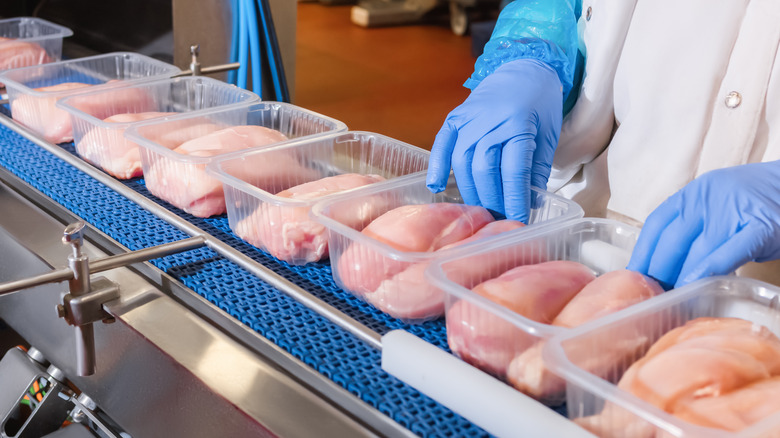What You Need To Know About The Recent Meat Listeria Outbreak
America is known for its apple pies, its penchant for freedom, and its inherent love of meat. In fact, according to FarmDocDaily, the average American put away 264 pounds of meat in 2020. But although so many people in the U.S. have a need to eat crispy bacon first thing in the morning and a burger right before bed, it can be very easy to forget about the dangers of accidentally consuming meat contaminated by Listeria.
Listeria is a type of bacteria that can lead to the "flu-like" disease known as listeriosis (per the Meat Poultry Foundation). This illness will leave those infected by it with fever and headaches. It can lead to miscarriages in pregnant women and cause serious health issues for the elderly and immunocompromised. That being said, because Listeria is often found in unprocessed meat, meat contaminated from the bacteria is one of the most common ways to contract the disease.
And now, the U.S. Department of Agriculture (USDA)'s Food Safety and Inspection Service (FSIS) has announced that Behrmann Meat and Processing Inc. has recalled 87,382 pounds of meat that was possibly exposed to this harmful bacteria. Here's how to make sure you're not accidentally putting your health at risk.
Be sure to check the your fridge for these possibly contaminated meats
According to the USDA, Behrmann Meat and Processing Inc. is recalling meat it manufactured this year from July 7 to September 9. The products made during this time frame include ready-to-make food like bacon, cured ham, and pork loins, via the USDA's official list of recalled products. All of the possibly contaminated meats were distributed to stores across Illinois, Kentucky, and Missouri.
To check if any meat you purchased is a part of this recall, the USDA reports that you should look for your product's USDA mark off inspection. If you find that your label has the phrase "EST 20917" inside of it, your meat may be contaminated with Listeria. In that case, the outlet reports you should either toss the contaminated product out or attempt to return it to the store. You may also want to clean out your fridge to ensure no other food is contaminated.
The USDA explained that the meat processor found out about the contamination in their factory after doing tests with the Food and Safety Inspection Service.

